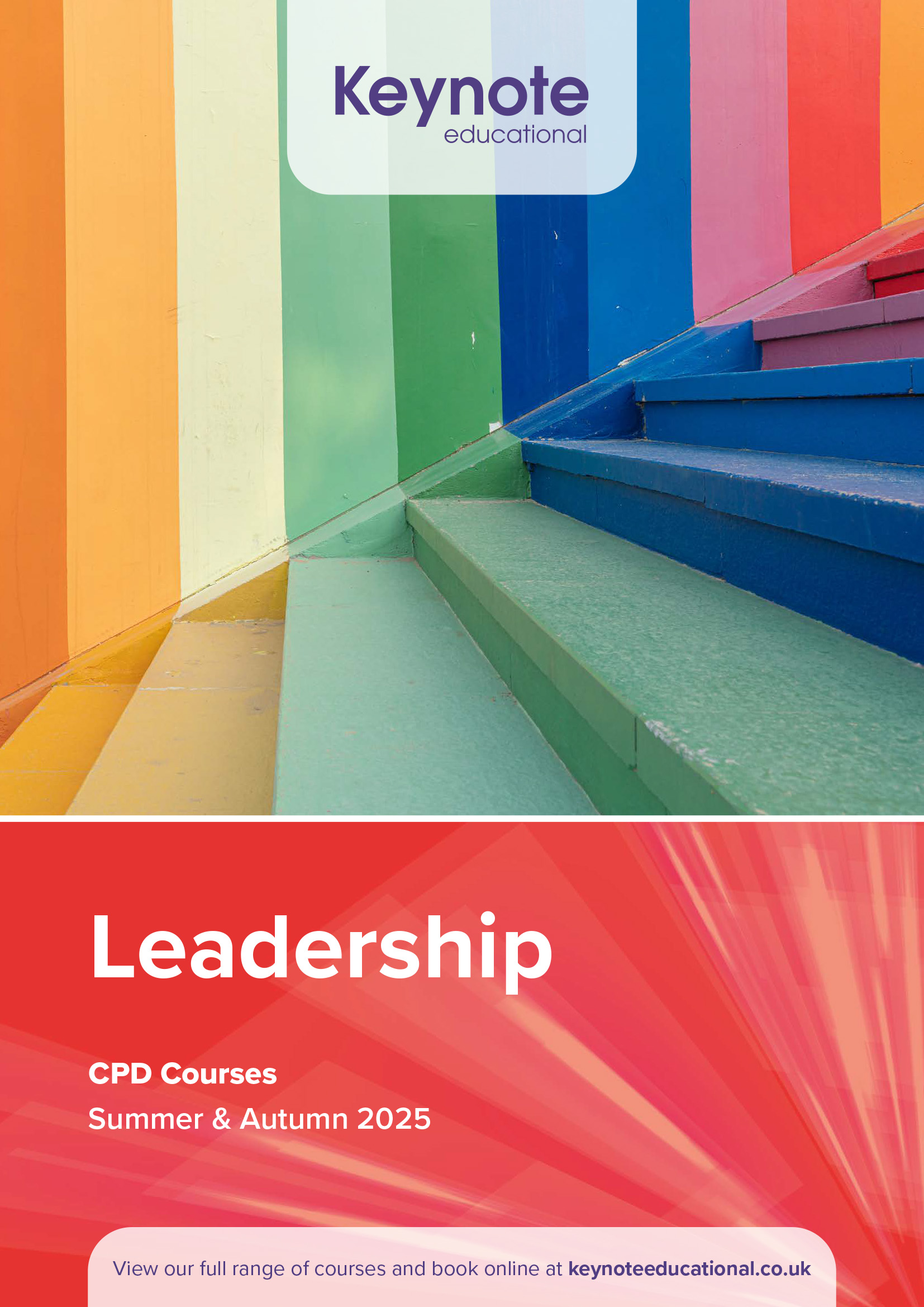Leading Learning with Cognitive Science
ABOUT THIS COURSE
The best schools don’t just focus on what is taught—they focus on how students learn. Cognitive science is transforming education, helping teachers and leaders make informed, high-impact decisions about teaching, learning, and curriculum design.With increasing emphasis on curriculum impact, student progress, and metacognition, understanding how students retain and apply knowledge is more important than ever. This course will provide practical, evidence-based teaching strategies that improve long-term memory, reduce cognitive overload, and help students become independent, self-regulated learners.
Rooted in the latest research, this intensive one-day course will equip teachers, heads of department, and senior leaders with the tools to drive attainment, close learning gaps, and enhance curriculum outcomes. Whether you want to improve classroom practice, refine your curriculum, or embed a research-informed approach across your school, this course will give you the insights and strategies you need to lead learning effectively.BENEFITS OF ATTENDING
- Deliver more effective lessons – Use proven cognitive science strategies that maximise learning and retention
- Improve student outcomes – Apply research-backed methods to drive progress and close learning gaps
- Enhance curriculum design – Structure learning for deep understanding and long-term recall
- Harness AI for teaching – Learn how AI can enhance learning while maintaining academic integrity
PROGRAMME
10.00am: Welcome & Course Overview- Why cognitive science matters and the bridge between research and real classroom impact
- The key barriers to student learning and how to remove them
- How cognitive science underpins effective curriculum design and student progress
- What outstanding teaching looks like, what are the key principles that work in every classroom?
10.15am: The Science of Learning: The Foundations of Outstanding Teaching
- How students actually learn: working memory, cognitive load, and schema development
- The forgetting curve - why students forget and how to stop it
- The power of structured learning - why sequencing content correctly boosts retention
- The link between learning, attention, and motivation—designing lessons that engage and embed knowledge
10.45am: High-Impact Teaching: What Really Works?
- Retrieval practice – why frequent, low-stakes quizzes boost long-term memory
- Spacing and interleaving – how structuring learning correctly improves retention
- Cognitive load theory – reducing overload to maximise student understanding
- Dual coding – using visuals effectively to enhance learning
- Elaborative interrogation and self-explanation – deepening student understanding through questioning
- Direct instruction vs discovery learning – knowing when and how to use each method
11.30am: Break
11.45am: Metacognition: Teaching Students How to Learn
- What metacognition is and why it significantly improves student progress
- Developing self-regulated learners - helping students take ownership of their learning
- Metacognitive questioning – getting students to think deeply and solve problems independently
- Strategies for embedding metacognitive approaches across all subjects
12.30pm: Lunch
1.30pm: AI in Education: Transforming Teaching and Learning
- How AI is reshaping education - what’s hype, what’s real, and what matters for teachers
- The best AI tools for differentiation, lesson planning, and assessment
- How AI can reduce teacher workload without replacing great teaching
- AI vs academic integrity - ensuring students engage with learning, not just copy answers
- AI and feedback - can AI support targeted interventions?
- Practical strategies for introducing AI in your school or department
- How to create a clear school AI policy, ensuring AI is used effectively and ethically
3.00pm: Break
3.10pm: Applying Cognitive Science in Your School
- How to embed these strategies across a department or whole school
- Overcoming resistance to change and ensuring buy-in from staff
- The role of leadership in sustaining evidence-based practice
- The best resources for continuing professional development and long-term impact
3.40pm: Depart
 Leadership - Code: T0379
Leadership - Code: T0379
Leading Learning with Cognitive Science

Dr Stephen Belding is an experienced teacher and Head of Chemistry at Rugby School. He holds an MChem and a DPhil in Chemistry from Oxford University, and a Masters from the University of Buckingham, where he focused on school inspection reports and what drives excellence in schools. With over a decade of teaching experience, Dr Belding is an A-level examiner, PGCE mentor, and author for Seneca, as well as a presenter and content developer for Rugby School Online. Additionally, he serves as a school governor at Ashlawn School in Rugby.

